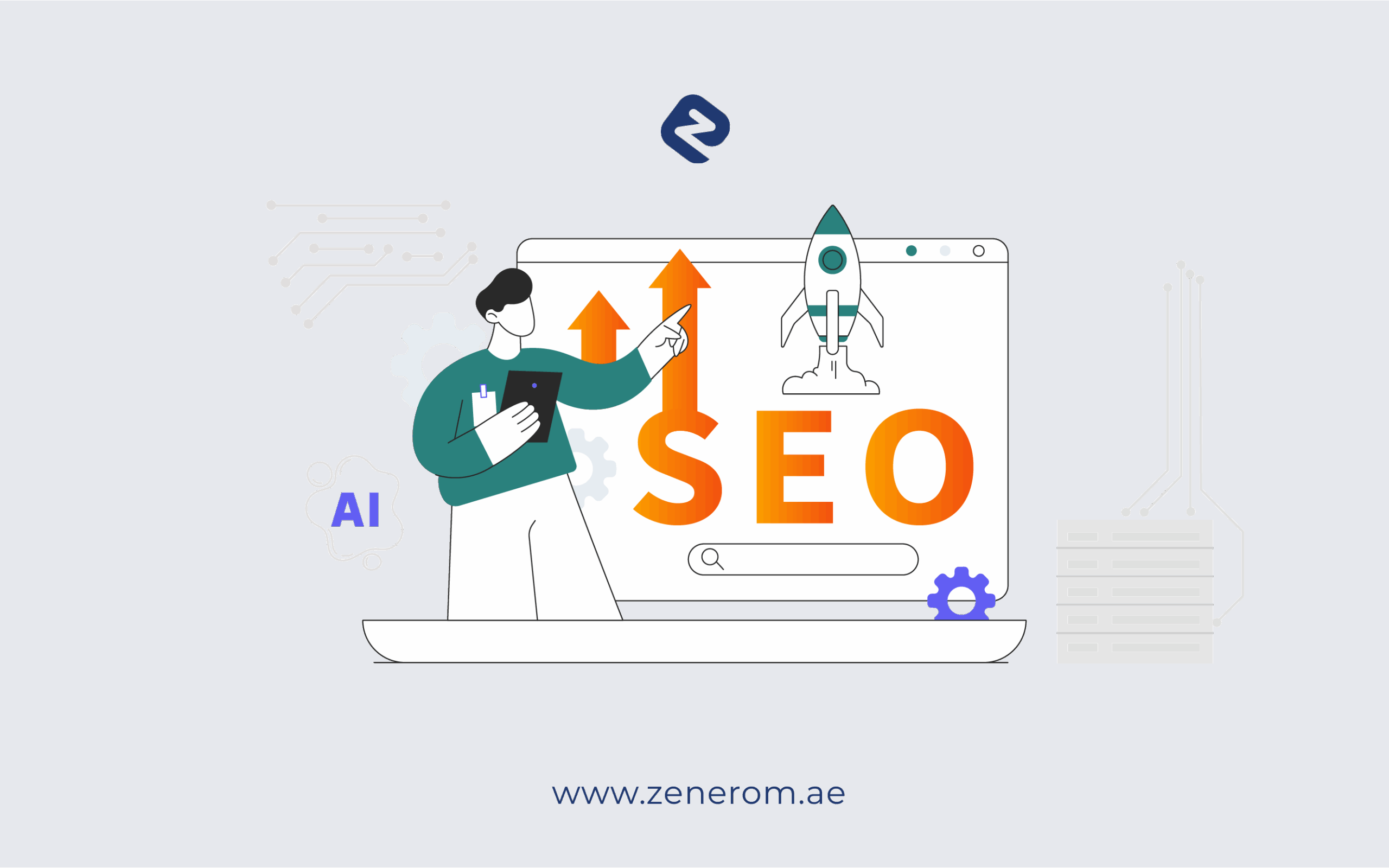SEO is rapidly changing. Along with the emergence of AI-enabled search engines and large language models (LLMs) such as ChatGPT, Gemini, and Claude, the information discovery process in the online environment is shifting. The days when traditional practices of SEO: which placed an emphasis on keywords and backlinks, were considered sufficient are long past.
And that is where LLM SEO comes in.
What is LLM SEO?
LLM SEO (Large Language Model SEO) is the practice of optimizing website content to be easily comprehended and exposed to AI-driven search engines. Instead of being totally concerned with keywords and ranks, LLM SEO emphasizes context, semantic meaning, and natural language – relating the content in a language that reflects how people ask questions in real life.
It can help to visualize it this way: SEO only validates your website in “10 blue links’” whereas LLM SEO helps AI Assistants choose your content as the best answer in conversational friendly response.
Why LLM SEO Matters in 2025
The shift in user behavior is clear:
- Instead of typing “best coffee shop in NYC”, users now ask “What’s the best hidden coffee spot in New York that stays open late?”
- People expect one clear, helpful answer, not just a list of links.
- LLMs scan, interpret, and summarize information from multiple sources, choosing the most relevant and trustworthy content.
If your content is structured, credible, and conversational, AI models are more likely to select it when generating answers.
Key Shifts in SEO for the LLM Era
1. Moving from Keywords to Context
Traditional SEO was keyword-heavy. LLM SEO is context-driven.
- Old way: “coffee beans”
- LLM way: “buying organic coffee beans online with free delivery”
Long-tail keywords and natural phrasing work better because they mirror how people talk to voice assistants or chatbots, and they are an essential part of effective SEO Services Dubai strategies.
2. Optimizing for Semantic Search
LLMs don’t just look for exact words — they interpret meaning.
- Use semantic keywords (conceptually related terms).
- Write in simple, natural sentences instead of keyword stuffing.
- Answer questions directly: What, Why, How, When.
3. Creating High-Quality, Helpful Content
In the world of LLMs, content is still king, but quality matters more than quantity.
- Provide comprehensive, creative, and accurate information.
- Cover related concepts (not just one keyword).
- Add examples, case studies, or FAQs that AI can pick up as reference points.
4. Structuring Data with Schema Markup
AI models rely on structure to understand content.
- Use Schema.org markup (FAQ, How-to, Product, Local Business).
- Organize your site with clear headings (H1, H2, H3).
- Add tables, bullet points, and lists (AI loves digestible formats).
Example: If you run a coffee shop, schema markup can help an LLM know your location, hours, menu, and reviews.
5. Focusing on E-E-A-T Principles
Google and AI models look for content that shows:
- Experience – Real-life insights or case studies.
- Expertise – Knowledgeable writing on the subject.
- Authoritativeness – Strong online reputation and backlinks.
- Trustworthiness – Transparent, accurate, and reliable information.
The stronger your E-E-A-T signals, the more likely your content will be chosen by AI search systems.
6. Use Structured FAQs
FAQs answer common user questions explicitly, providing a perfect format for AI answer engines and voice assistants.
Practical LLM Optimization Techniques
- Use structured FAQs (direct Q&A format).
- Write in natural, simple, conversational language.
- Add semantic keywords (conceptually related terms).
- Include schema markup for clarity.
- Provide long-form content that answers multiple related questions.
- Update content frequently (AI models prefer fresh, up-to-date data).
GPT vs. Other LLMs: Why It Matters for SEO
GPT (by OpenAI) is one of the most popular LLMs, but it’s not the only one.
- GPT models → great at generating conversational answers.
- Other LLMs (Claude, Gemini, LLaMA) → may focus on summarization, classification, or specialized queries.
Your content should be structured in a way that works for all LLMs, not just one platform.
Future of SEO in the Age of LLMs
- Search is becoming conversational – Prepare for voice-first and question-based queries.
- Content snippets, not full pages, matter more – AI may use part of your content as an answer.
- Brand authority is crucial – If your brand is cited often, AI will trust it more.
- Local + Contextual SEO – For service businesses (like interior design in Dubai), local schema and reviews are key.
The Role of Answer Engine Optimization (AEO) & Generative Engine Optimization (GEO)
LLM SEO is analogous to Answer Engine Optimization (AEO) and Generative Engine Optimization (GEO), approaches to search engine optimization that adapt to the trend of AI chatbots and AI generative engines..
- AEO is focusing on creating content that is tailored to meet the instant answer box and the AI-driven search snippet parameters, as to make your site the repository of the exact answers that answers presented in the digital assistants.
- GEO is positioned to search engine optimization of generative AI content that can formulate new responses by learning content thematically and in semantic relationships.
Combined, these strategies help you not only be found by search engines but be picked up and ranked by the AI.
Final Thoughts
LLM SEO is not about replacing traditional SEO, but adapting it to AI-driven search behavior.
To succeed in 2025 and beyond, businesses should:
- Write conversational, helpful content.
- Use schema and structured data.
- Focus on trust, authority, and user experience.
- Keep content fresh and context-rich.
By doing this, your website has a much higher chance of being picked by AI models as the best answer bringing more visibility, traffic, and business opportunities.


